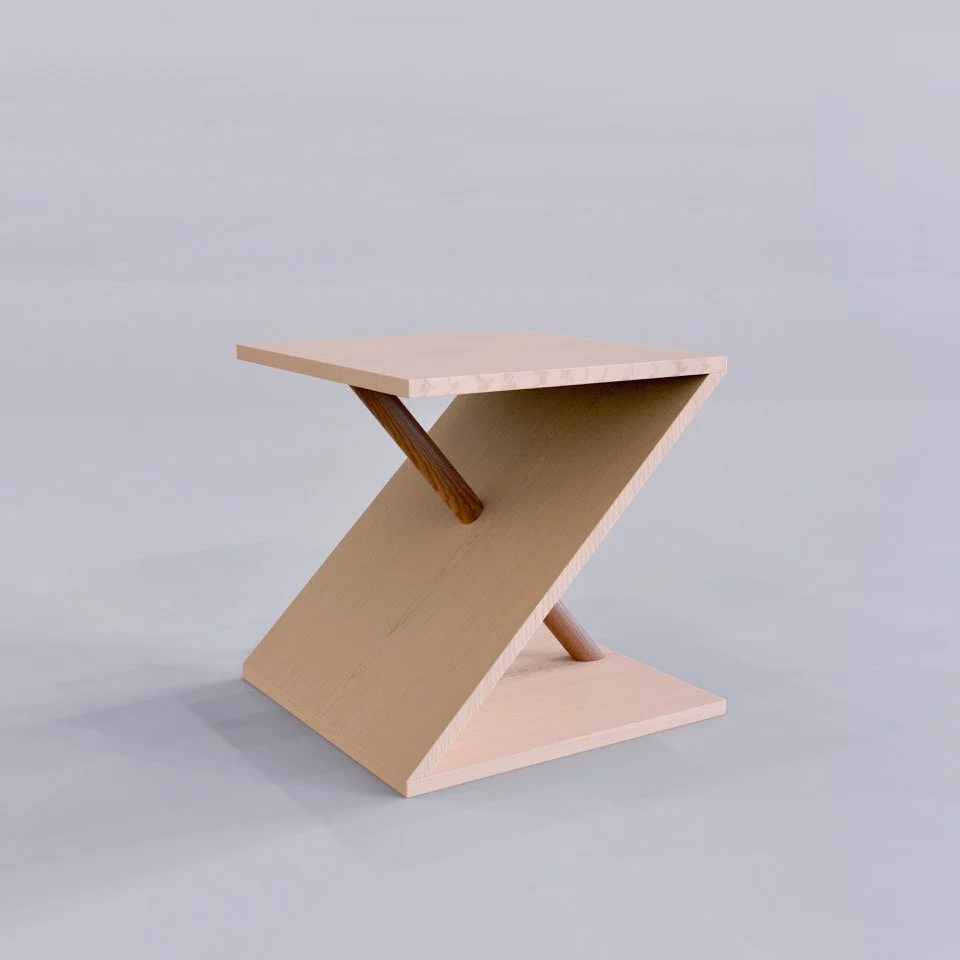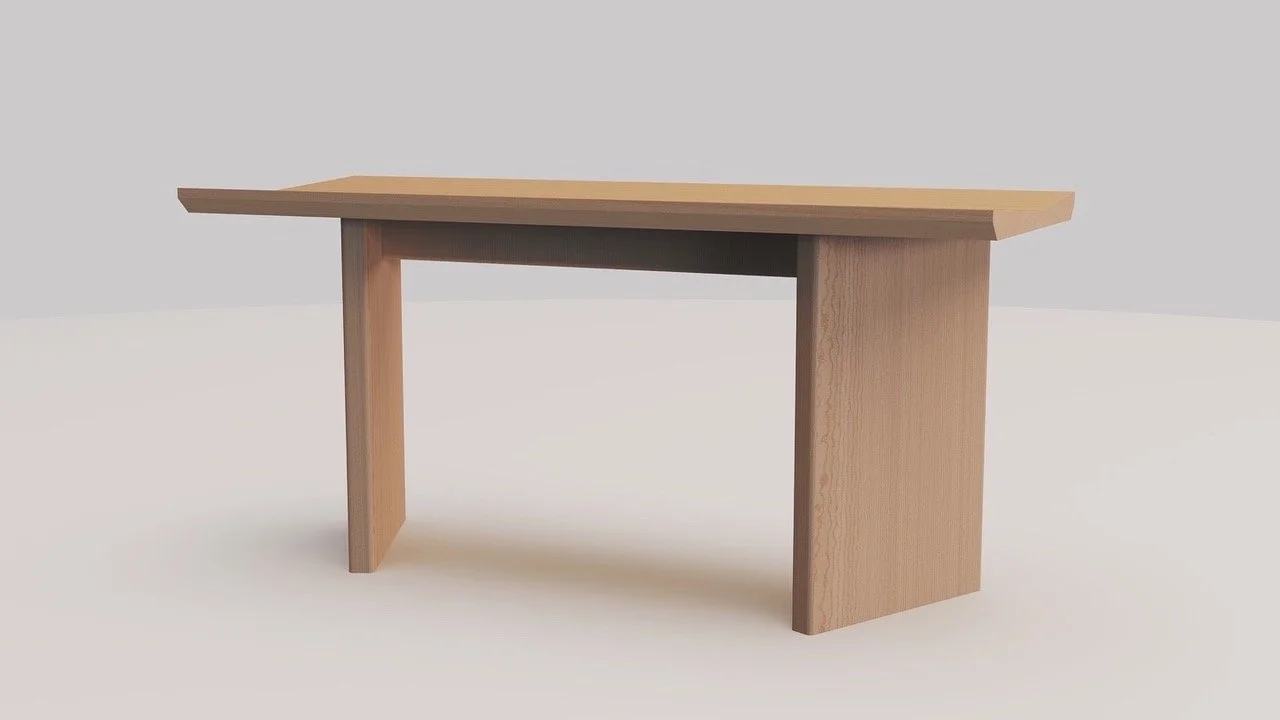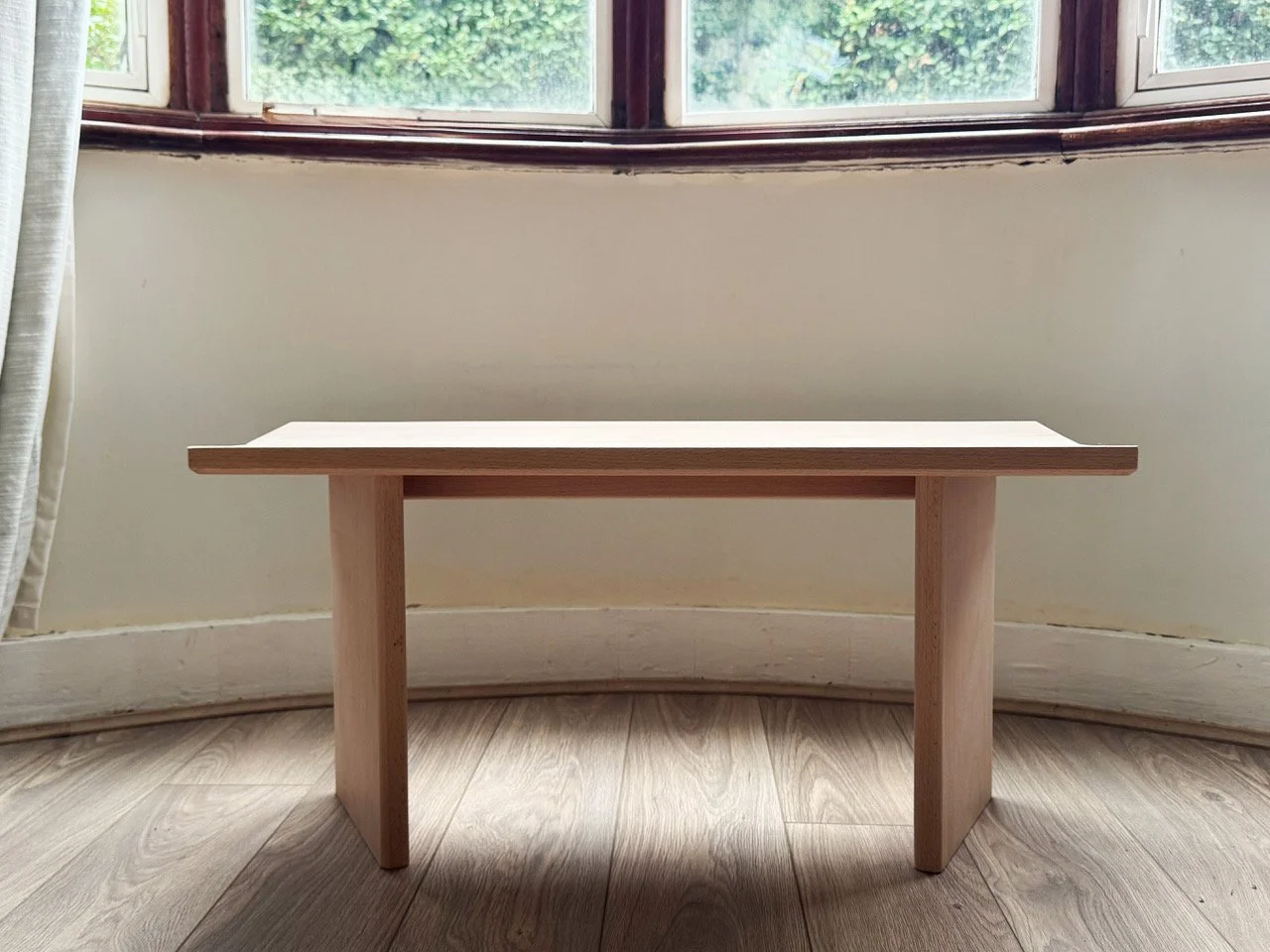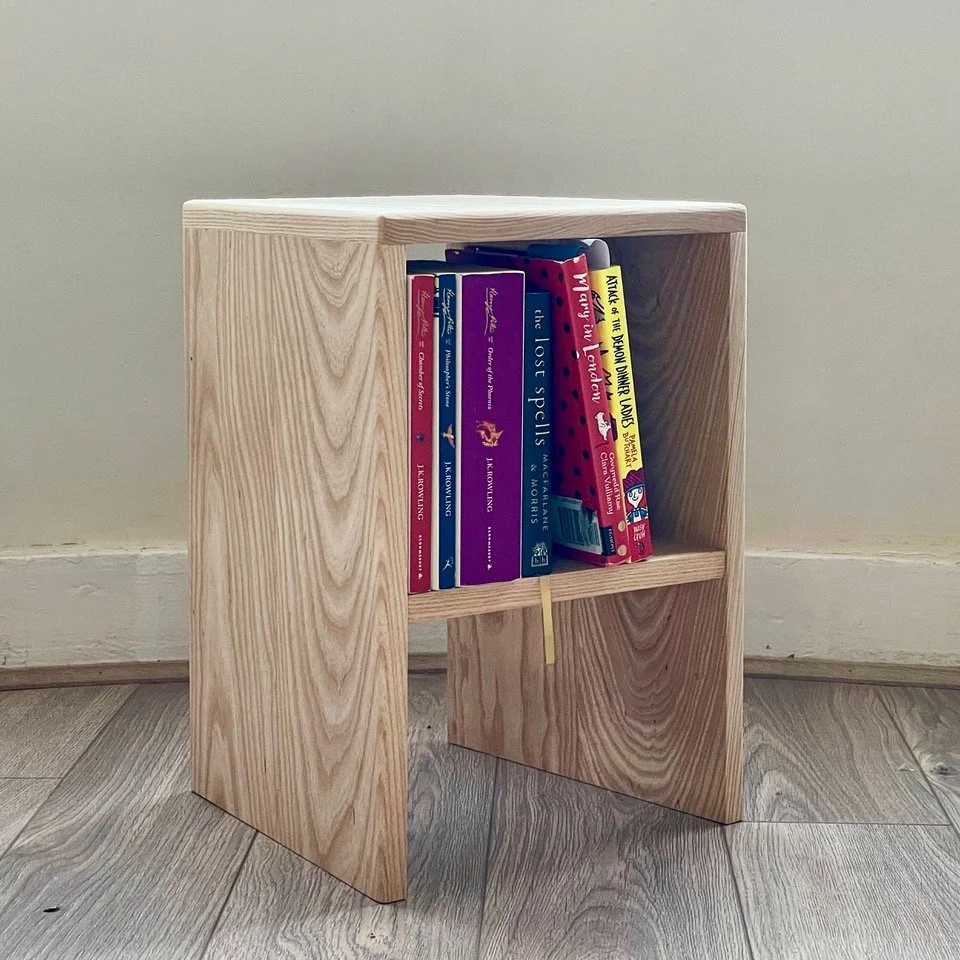Digital, Physical, Material: aP21 interviews DE/KOR studio’s Founder Levin Haegele
Render of the XO Stool
Courtesy of DE/KOR studio.
“Levin Haegele is the founder of the newly launched startup DE/KOR, a design studio based out of London that sees the physical and the virtual as intertwined in a sensuous dance. Here, in his first interview since his soft launch, Haegele offers readers an insight as to why he founded the creative studio and what he seeks to do differently. ”
Levin, let's talk about de.kor aka DE/KOR. The project is as much about material culture as it is about digital culture. When I interviewed you for my book Internet_Art, I saw something like this coming. Can you sketch out conceptually what it is all about?
For me, DE/KOR is all about bringing the digital and physical worlds together. I’ve been working digitally for years as a photographer, videographer and technologist, and I’ve always wanted to get back to using my hands more. But I know I can’t completely leave the digital side of things behind, because my brain has become so used to using it as a tool. What I find really fascinating is this shift from sketching on paper, refining on the computer and then creating a physical object. Watching this transformation unfold is incredibly satisfying. The other really rewarding part is that the person I’m building this object for is also part of the process. The final object and its physical form aren’t a surprise, as they look almost the same visually, but I can see people reacting much more strongly to the ‘thing’ than to the renders.
We've known each other for some time now, heck you were even at my wedding! When we first met, we were both working at SPACE, the organization that artists Bridget Riley and Peter Sedgley founded. Among other things: You were running the media lab, constantly learning new technology, from how Arduino applications worked to various forms of 3D animation software. You then spent several years teaching in higher education at universities. How did that experience affect you and the ethos of how you approached DE/KOR?
My time at SPACE and my years of teaching have shown me how important it is to listen to others and find creative solutions to unusual requests. Working with creative people, I’ve often been asked, ‘Is this possible?’ My first thought is always ‘yes’, but then I have to figure out how to make it happen. Problem-solving and managing expectations are key in DE/KOR. I always think about how to push the boundaries of materials, spaces and what objects can do.

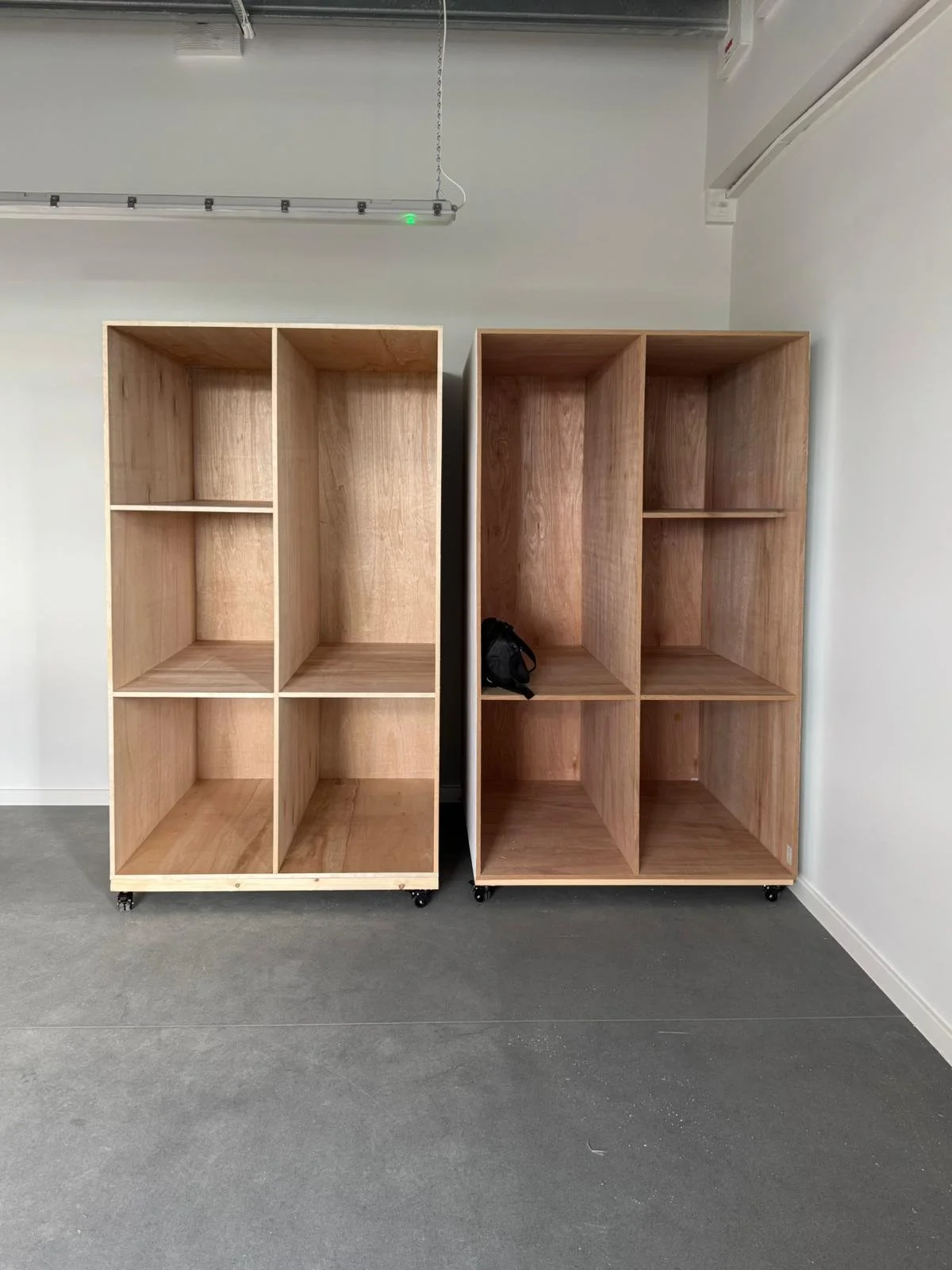
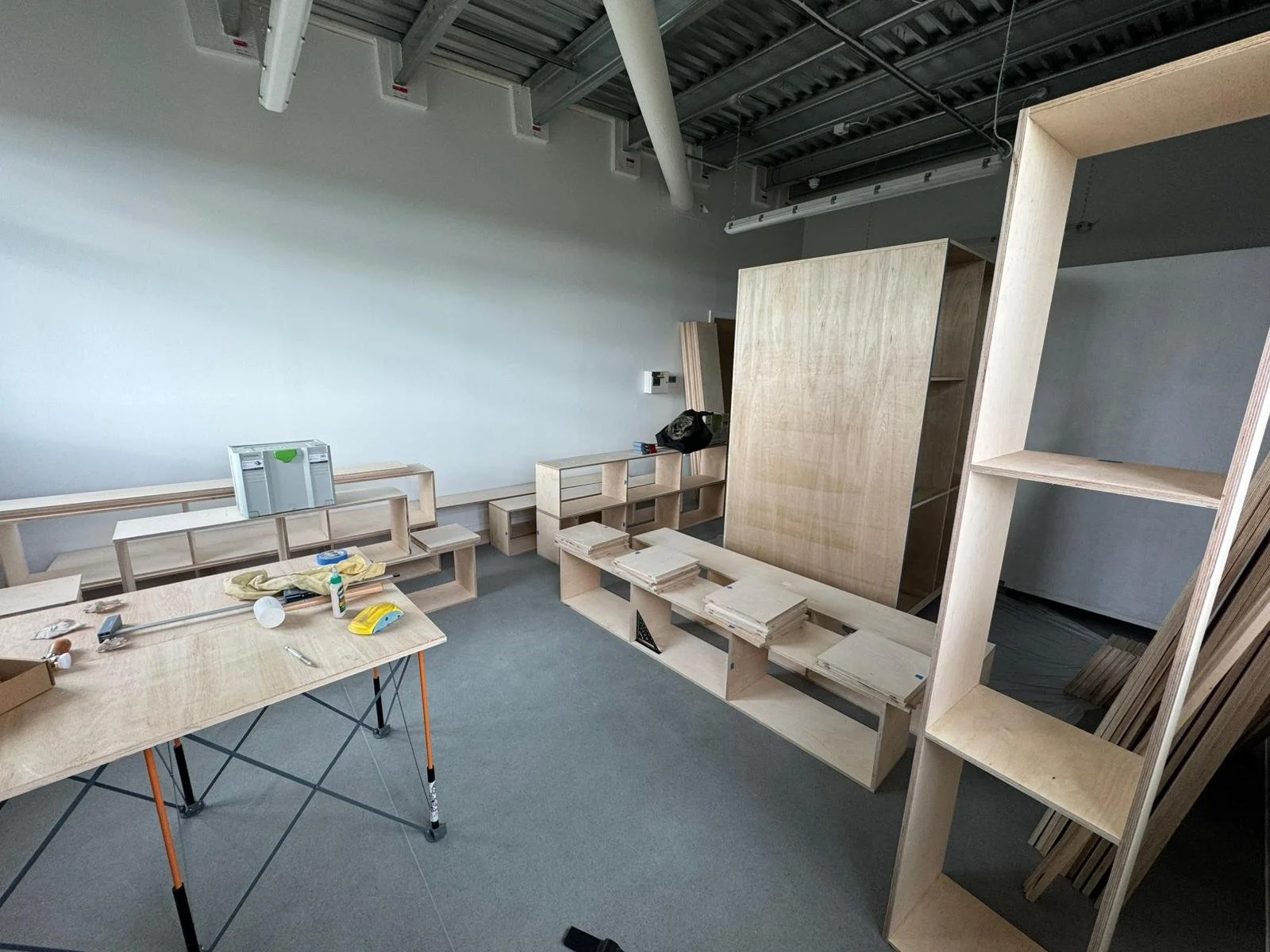
Let's home in on some of and on your process a little bit and how you decide whether to take on a project. When I asked you once if you'd franchise your designs, you felt kind of 'iffy' about it. The notion of taking someone's loose concept, working it out digitally, and the constant back and forth, subsequently materializing it spatially through, transforming it into a unique aesthetic object that belongs solely to that person seems deeply important here, would that be fair to say? This is something a lot more than boutique or bespoke. It seems that DE/KOR studio is a project that revolves around data input that is completely different from that of AI, but rather invested in a sense of the human?
DE/KOR should always be rooted around the human. That’s why I’m so excited by the physical outcome as it is tactile and not just visual. For instance, the Holford bench looks good, but if it isn’t comfortable to sit on, then it fails as an object. There needs to be a balance between aesthetic and purpose, but ultimately, I always lean towards purpose because it needs to function as an object. Shelves can look good, but if they are too narrow or not high enough for a variety of books to fit, then what’s the point?
Working collaboratively with the person who commissions me is really important. The object, whether it’s a desk, a table, shelves, or a chair needs to suit their needs, whether that’s dictated by the amount of space that they have or their aesthetic tastes. So yes, each piece is bespoke. I would, however, make the distinction between unique and bespoke as there are only so many iterations of an object. For instance, I designed a loo roll holder purely because I found that there weren’t any available that were very interesting. The holder has a singular purpose that isn’t unique, but I made something that was bespoke to my own bathroom. So, for me, taking unloved and over-specific objects and using those as starting points for something more interesting is also something that I think about often. I think I may be going on a bit of a tangent here talking about loo roll holders!
But to give a shorter answer to your question, I take on a commission if everyone involved is genuinely interested in solving a problem and that the expectations on how much it will cost and how long it will take are understood. I could find a project incredibly interesting, but if the budget won’t allow for it to be realised, then I can’t continue with it. Although I may still sketch it out for my own curiosity, but don’t tell anyone that!
Render of the Holford Bench.
Photo courtesy of DE/Kor studio.
We have recently collaborated on consolidating the artPost21 archive and collections. You are the architect of "most" of the operation. I say, most, because I ain't letting go of my input to the dataset of the "ideas" lol. Data. Input. Output. Over the last several months as this project has come together, one of the things that we have been discussing has been the necessity for a form of ‘polymath culture’. The need for one to be many things at once, to assume many roles. At one point, this was associated with a kind of human genius, but now you and I see it as a necessity of and for survival. Can you say a little bit more about that?
The Holford Bench
Courtesy of DE/KOR studio.
It seems like ‘polymath culture’ has evolved quite a bit, hasn’t it? With so many tools available now, it’s much harder to be ‘bad’ at something. For example, computational photography on any iPhone from the last few years has actually made it tough to mess up a photo—like it being too dark or too bright, or it being out of focus. Back in the day, seasoned photographers knew the relationship between ISO, aperture and shutter speed inside out, and that knowledge was what really set them apart in the industry. Now, it feels like the ‘fix it in post’ generation is in charge because it’s simpler and cheaper to let a device do it for them.
So going back to the necessity of assuming many roles, it all comes down to being flexible in knowledge and ability. I learned how to navigate a range of skillsets because of being a freelancer. The more I know, the more jobs I can take on. I am naturally a curious person, so learning new things is always exciting, but I am aware that working independently comes with uncertainties and inconsistencies with regards to income. I’ve had to keep my skillset varied. Being a polymath and autodidact suits me well. For instance, learning CAD for my role as a designer and fabricator often separates me from others in the field because I can produce something that a client can then see in their own space using AR. It also allows me to significantly reduce the number of things that I have to outsource.
Let's break down the name. It's sort of an acronym, or rather a metaphor; it's a nod to a certain kind of poetic in-between-ness that I'd love for you to tell us about.
The name DE/KOR comes from my ethnic background. I am half-Korean and half-German, so it felt right to use that as the name. Plus, the term décor suits the industry I am in. I had a real hard time coming up with a name for what I am doing without using my own name as a company. I suppose I associated it with ego? DE/KOR works because my upbringing shapes how I approach aesthetics and solving problems.
I am also aware that there are so many other people who are also in a state of in-between-ness as you put it. I have never felt that I belong in any singular camp, and I guess the things that I design and make are similarly fluid.
‘The Iris’.
Photo courtesy of DE/KOR studio.


